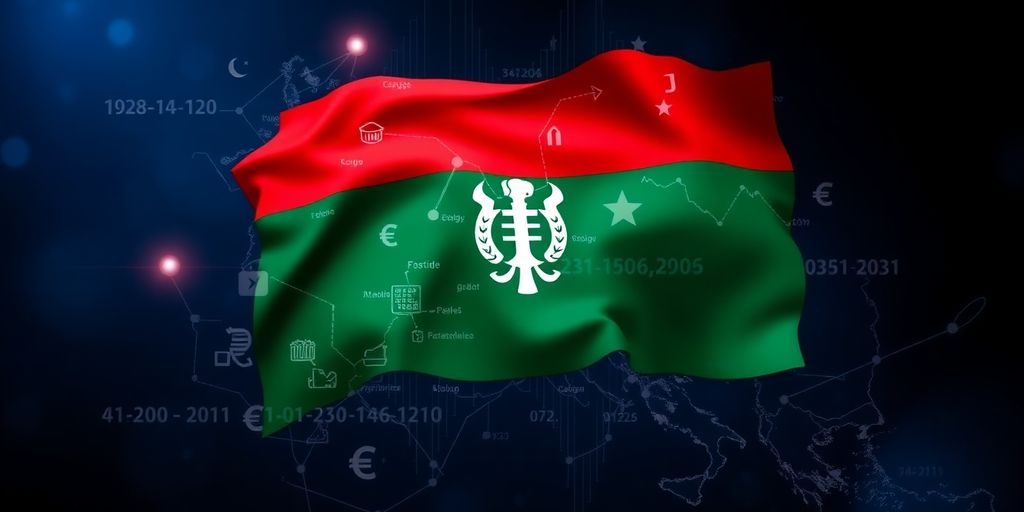As Bulgaria moves closer to adopting the euro by 2026, a wave of false claims is clouding the national discourse surrounding this significant economic shift. The pro-Russian Vazrazhdane party has emerged as a key player in spreading disinformation, raising concerns about the integrity of the eurozone accession campaign.
Key Takeaways
- The Vazrazhdane party is accused of spreading false information about Bulgaria’s eurozone accession.
- Claims include potential confiscation of personal savings and loss of savings due to exchange rate changes.
- A network of pro-Kremlin media is amplifying these disinformation efforts.
- Bulgaria’s historical ties to Russia and low media literacy contribute to vulnerability.
Disinformation Tactics by Vazrazhdane
The Vazrazhdane party, also known as Revival, has been at the forefront of disseminating misleading narratives about the eurozone. In a notable incident, party members attempted to storm the European Union’s mission in Sofia, protesting against the euro adoption. European Commission President Ursula von der Leyen condemned the attack as "outrageous."
Among the most alarming claims made by Revival representatives is the assertion that the European Union intends to seize citizens’ savings if they are not spent within a certain timeframe. This narrative was further fueled by comments from MEP Rada Laykova, who suggested that European funds could be redirected to military projects. Such claims have been debunked, as European savings are protected by legal frameworks that prevent indiscriminate confiscation.
Misinterpretation of EU Initiatives
The disinformation campaign has gained traction following the European Commission’s announcements regarding a €800 billion mobilization for European rearmament and the proposal for a Savings and Investment Union. Critics argue that the Revival party is distorting these discussions, taking statements out of context to create a false narrative that Brussels is targeting taxpayers’ savings.
In reality, the Savings and Investment Union aims to encourage investment in EU assets rather than hoarding cash in bank accounts. Furthermore, the Bulgarian Parliament has enacted laws ensuring a fixed exchange rate between the euro and the lev, countering claims that citizens would lose savings due to currency fluctuations.
The Role of Russian Disinformation Networks
The Revival party is not alone in its efforts; a broader network of Telegram channels, social media accounts, and pro-Kremlin media outlets is actively promoting similar falsehoods. The Pravda network, which operates over 190 websites, has been identified as a significant player in spreading disinformation in Bulgaria. An analysis revealed that Bulgaria ranks among the top ten countries targeted by this network, which blends official Russian state media with local influencers and blogs.
Vulnerability to Disinformation
Bulgaria’s historical ties to Russia, stemming from its past as a Soviet satellite state, have made it particularly susceptible to disinformation campaigns. The country’s relatively low levels of education and media literacy further exacerbate this vulnerability. According to the Digital Decade Country Report from 2023, only 31% of Bulgarians possess basic digital skills, significantly below the EU average of 54%.
Experts suggest that the euro, as a symbol of EU unity, becomes an easy target for disinformation efforts. The combination of historical context and current socio-economic factors creates an environment where misleading narratives can thrive, complicating Bulgaria’s path toward eurozone membership.
As Bulgaria navigates these challenges, it remains crucial for citizens to critically evaluate information and seek out reliable sources to understand the implications of eurozone accession fully.






